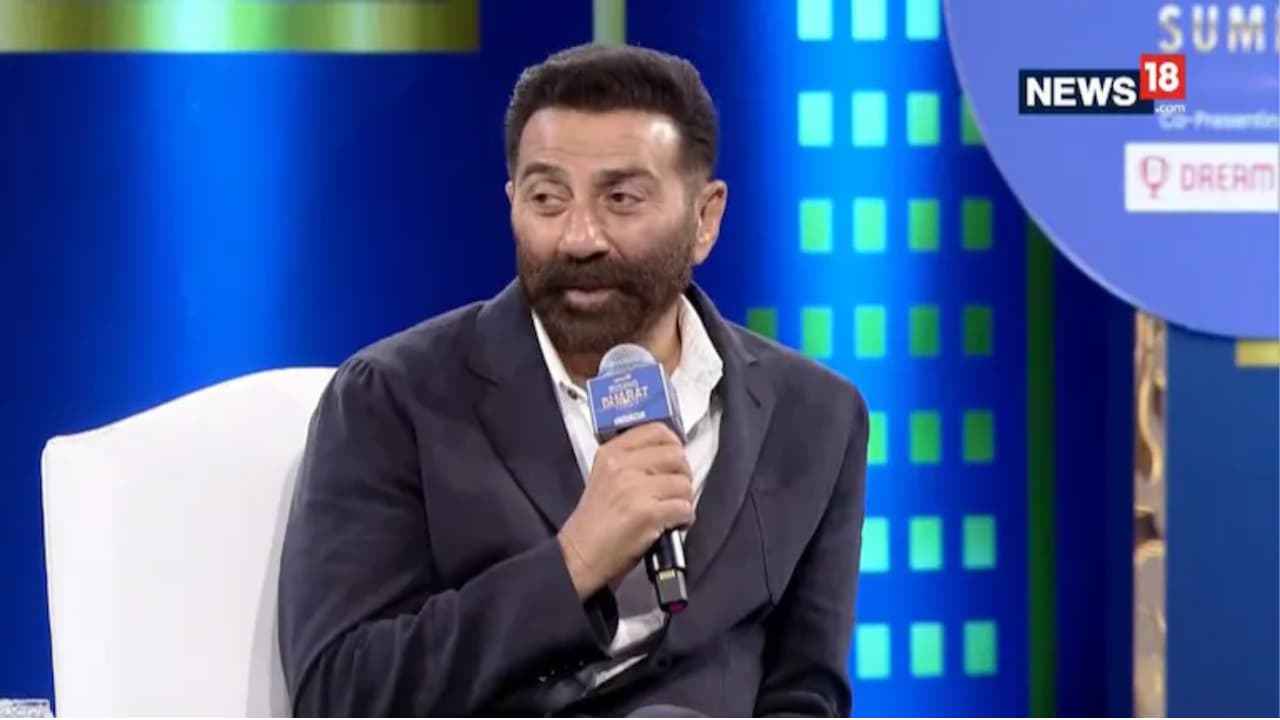At the News18 Rising Bharat Summit 2025, actor and former parliamentarian Sunny Deol took the stage for a candid conversation that spanned cinema, politics, and the emotional pull of his Punjabi roots. With characteristic humility and humour, Deol opened by jesting that he doesn’t quite feel his age, setting a warm tone for what was to be a heartfelt and insightful session.
News18’s Rising Bharat Summit 2025 is being held today, April 8, to celebrate the power of India’s youth as the driving force in the journey towards a Viksit Bharat by 2047.
The conversation turned to Indian cinema’s changing dynamics. While acknowledging the wave of South Indian cinema that has swept across the nation, Deol made a pointed observation about Bollywood’s ongoing struggle. “One type of cinema works a lot, then people get bored and it gets monotonous,” he remarked, reflecting on how Hindi filmmakers may have lost touch with the audience. “Our viewers cannot identify with the movies being made. But South Indian movies satisfied the hunger of the audience to a great extent.”
Sunny Deol, whose career was recently rejuvenated by the thunderous success of Gadar 2, shared that his return to form felt like his “shop reopened”. When Gadar first released, it became a cultural phenomenon—but the years that followed were quiet. “Meri dukaan band ho gayi,” he said with total honesty. “But during Gadar 2, dukaan khul gayi.”
This resurgence has led to a string of new offers, and Deol is now collaborating with South India’s Mythri Productions on an upcoming film titled Jaat. Speaking about the project, he said, “Mythri Productions wanted to sign me, and they brought a story of a Jaat. The movie is as ‘dumdaar’ as the trailer—it’s a mitti se judi hui kahaani,” indicating a deeply rooted, authentic narrative. Notably, while many South Indian hits in recent years have been remade in Hindi, Deol clarified that his film is an original story produced by a South-based banner.
Touching upon Bollywood’s introspection following the pandemic and years of mixed box office performances, Deol noted a shifting tide. “After Gadar 2, I got many offers. But only a few films like that are being made. The industry said it is old school. But the audience said, ‘We want this only.’ Our makers’ thinking then changed. By next year, subjects in films will reflect our country.” In a time when many creators are chasing global appeal and sleek storytelling, Deol believes the pendulum is swinging back to narratives that resonate with the Indian heartland.
The session took a political turn when an audience member asked if he would return to contest elections from Gurdaspur, Punjab, the constituency he earlier represented in Parliament. In response, Deol expressed a deep emotional connection to his roots. “Punjab is my home, and I will always come home. But we as actors are blessed people—we belong to the world. Whatever characters we play, they live in the hearts of the audience.” He clarified that while he is not active in politics currently, he remains engaged with the spirit of the nation. “Wherever I go, I sit and eat with the people living there, and that has a fun of its own.”
Deol also spoke about the Punjab of his youth, a place that remains vividly alive in his memory. “1962 to 1980—I grew up in Punjab, and that era still remains in my heart and mind. But now when I go there and see some changes, it makes me sad,” he admitted, revealing a nostalgic and emotional side rarely seen in public appearances.
In a poignant moment, Deol deconstructed the meaning of his most iconic cinematic line—“Dhai kilo ka haath.” While the phrase became synonymous with brute force and cinematic action, Deol offered a more philosophical take. “It’s not about how strong you are physically,” he said, “but about how genuinely you stand for truth and justice.” He explained that the metaphorical weight of that “hand” lies not in power, but in one’s honesty, integrity, and commitment to righteousness.
Sunny Deol’s appearance at the summit was more than a nostalgic rewind—it was a compelling reflection of a man who, despite decades in cinema and a stint in politics, remains deeply connected to the soil, the stories, and the soul of the country.
